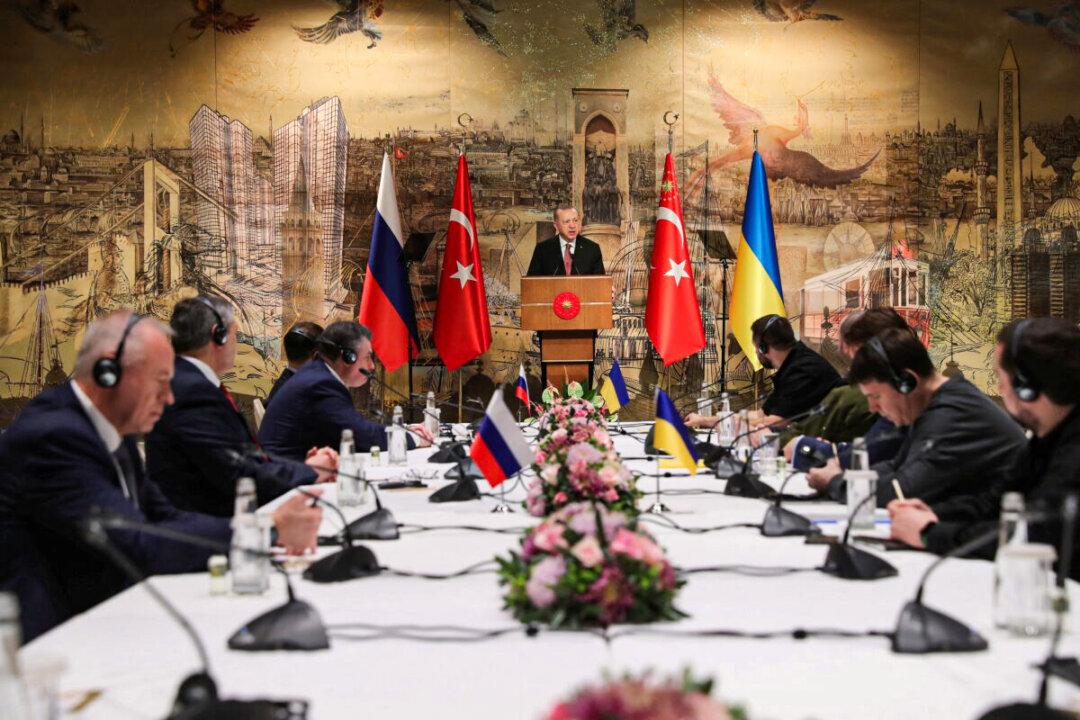Ukrainian officials have said that they see some grounds for optimism following the latest round of peace talks in Istanbul, although a Kremlin spokesperson said the negotiations had yielded no breakthroughs and much work remains to be done before a deal could be reached that would end the fighting.
“I have an optimistic impression of the round of negotiations in Istanbul,” Ukrainian negotiator Mykhailo Podolyak told an online briefing following the talks, during which Moscow stated that it would scale back its military operations in parts of Ukraine.





